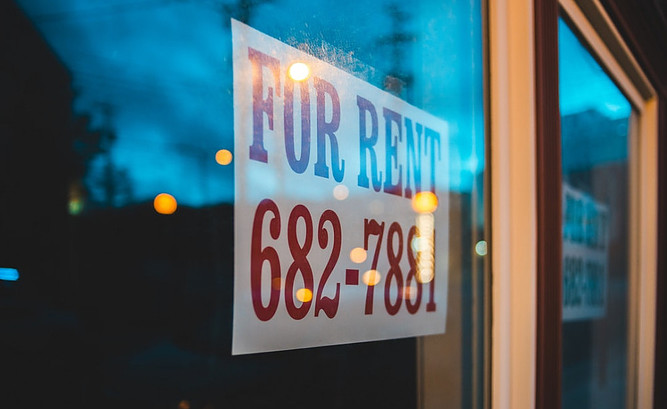Surprisingly, the landlords’ biggest fear is whether they can find a good tenant to let the investment property and then if their tenants will pay rent on time or not. There are multiple reasons why a tent wouldn’t pay rent on time. Sometimes that is due to problems of personal or business nature. While there can be ‘reasonable’ excuses, in some cases, it is unfair towards the landlord to have their livelihood denied. For that reason and as a solution, there are rent guarantee programs. But, do Rent Guarantee Programs work?
This article will dive deep into the term and concept of rent guarantee programs, how they work, why they’re so well-loved among landlords, and why you might love it too.
If this concept is alluring to you from the first glance, or you’ve heard about it before and just wish to find out more, read on.
The structure of the article follows the string of topics mentioned in the previous line; first, the term rent guarantee program will be defined, some other terms it can be found under will be named, and the way they work.
Then, we’ll dive deeper into the topic as to who offers them and why as well as when to spot a fake rent guarantee problem.
Finally, we’ll look at some advantages of rent guarantee programs. Perhaps why should you consider one? – and why you might not have any other choice but to.
What Are Rent Guarantee Programs?
The term rent guarantee program (RGP) is a fairly new term imported from the United Kingdom to the other parts of the world, so it could be unknown to some. So, at the very beginning of the article, we’ll do our due diligence of explaining it.
Rent guarantee program can also be found under the names “rent-to-rent” (or “rent 2 rent”) and “lease-to-let” or also “tenant default insurance”. Rent-to-rent is the most popular name, and you’ll probably stumble upon this concept.
The rent guarantee program is an insurance service you maybe weren’t even aware was on your disposition to use as a landlord. Should the tenants stop paying their rents for whatever reason, rent guarantee programs make sure you’re compensated for up to six months per year.
Just like the private mortgage insurance (PMI), the rent guarantee program protects the landlord and not the tenant.
It’s risk management of sorts, as it covers the costs that can be quite high. And, that way, you can settle the issues with the tenants without stress and start the eviction process without losing money.
Remember, evicting a tenant can last up to four months, and it can cost the landlord more than $10,000 in losing money. For that reason, the rent guarantee program is said to be the best protection you can give to your investment property, but that will be tested a little later in the article.
How Rent Guarantee Programs For Landlords Work?
Rent guarantee programs cover any type of residence. A landlord may need to choose an insurance plan he likes the most and the duration period, which can be from 6 weeks to 12 months. Should the tenants stop paying their rents, the landlord simply files a complaint (Claim) and receives their money.
It’s important to note that this program is very much different from landlord insurance, which only covers damage to the leased-out property, rent default and rental loss. And that is all in mast case.
You may be confused a bit by now, so let’s dig a little deeper into the details.
After the landlord signs the contract to purchase a property, the developer company offering the rent guarantee insurance
effectively becomes their tenant, and certain rent is agreed. That means that even if the tenant manager struggles to find a tenant or your tenants stop paying their rents for whatever reason, the landlord’s income is ensured regardless.
Whatever the tenants decide to do, the company (developer, seller company or their insurance) offering the rent guarantee insurance is the one dealing with the financial loss.
Granted, the landlord may pay the monthly fee like they would with every other insurance, but that pays off greatly in unpredictable situations.
Most importantly, I should note that a Rent Guarantee Program is offered to a property investor who is about to purchase a property to attract them further to give them peace of mind that finding a tenant for that property (being sold) is sorted or guaranteed. Most of the time first-time property investors are attracted to this kind of ‘emotional deals’, but not the experienced.
(I will explain more on that later…)
Now, let’s turn on to who really offers rent guarantees. Developers by themselves? Or by insurance purchased by the property developer or seller (marketer) on behalf of the purchaser? Or simply by third-party landlord insurance that the developer market to the purchaser?
Let’s find out…
Who Funds For Rent Guarantee – Developers Or Insurance Schemes?
A hint for the question answered in this section was given before, where the way the rent guaranteed programs work.
To recap, they operate the way every other insurance does. In most cases, the landlord pays a monthly fee to the company that offers the rent guaranteed programs, which in turn becomes their tenant as well, and pays the fee back when their actual tenants are unable to for whatever personal reason.
From that, we can deduce that it’s the landlords who pay for their own rent guaranteed payouts. The program does not cost anything to the developer who sold the investment property or their marketer. All their costs are passed on to you to give the beginner investor a feeling of “freedom” or “guarantee”.
Allow me to elaborate.
Rent guaranteed programs function just like landlord insurance programs. A certain agreed sum is paid, which then serves as protection from certain risks. In exchange for that fee, the insurance company promises to compensate in case of misfortune. In the case of rent guaranteed programs, the risk is the tenants not paying their rents or not being able to find a tenant due to changes in the market.
As for how it’s paid, the two programs are once again very similar. The monthly insurance fee the landlords pay is collected, and in case they’re in need of compensation (or claim), it’s pulled from that collection of money.
So, to once again answer the question from the title, while it’s the developer who will physically hand the compensation money (in some cases), it’s the landlords themselves who are financing their own rent guaranteed insurances with or without their knowledge of doing that.
In other words, the cost of this insurance is taken from you one way or another, or embedded in the price tag of the property price. That’s all marketing!
Why Do Developers Offer Rent Guarantee Programs?
From the previous section, it’s also possible to deduce why rent guarantee offers are so appealing, both to the developers and the landlords.
We’ll focus on the landlords in the next section with some advantages of signing up for a rent guaranteed programs, and in this section, we’ll focus on the developers who offer these services.
So, why do they offer it?
Simple math is the basis. The landlords (with or without knowing that they do) will be paying the insurance fees every month from six weeks to 12 months just in case their tenants might not pay their rents.
Though, how often is it that tenants don’t pay rent? Most of the tenants are responsible adults who do their due diligence in paying their rents. Granted, that number might’ve dropped in the previous period due to the worldwide pandemic and the recession it’d bring along, but that is a topic for a whole other article.
The important thing is to note the amount of money that landlords end up paying to the developers in the course of the six weeks or 12 months, the money that they will stay with the developers (or developers insurance) unless the tenants stop paying their rents.
To sum that up, it’s all about profit and marketing.
Rent guarantee programs bring income to the developers (in some cases) and, most importantly, make the property they developed and sold appealing to the prospective property purchaser and provide reassurance and a piece of income back to the landlords during an unforeseen challenge from tenants.
Why Property Managers Like Rent Guarantee Programs?
There’s been enough negativity in the previous section. Let’s light up the mood with some advantages to the landlord’s score by investing in a rent guarantee program.
- Reassurance and less stress
This is the main reason why landlords choose to invest in rent guarantee insurance.
Whereas the tenants might have been diligent until now, it might not be forever. Life happens, and we never know what kind of trouble is waiting just around the corner. Unexpected illness, divorce, deployment into the army, or sudden business offers at another city that leaves little room to talk it out with the landlord.
In all these situations, the rents might not come in time, or ever. Thus, having rent guarantee insurance as a safety net makes sure that the already stressful situations aren’t as stressful to everyone.
- More time to find good tenants
After the eviction, the landlords are left with no tenants and might feel inclined to fill up the empty spot as soon as possible. This, however, might not be the best decision, and this decision doesn’t need to be made in such a rush.
With the rent guarantee insurance, landlords have time to find the tenants they like the best to fill up that empty space, all while that time they spend searching (if that is reasonable) is paid by the developers who offer the rent guarantee programs.
- More than physical damage
Landlord’s insurance has already been mentioned as another type of insurance that’s not to be mixed up with the rent guarantee insurance.
Landlord’s insurance only covers the physical damage to the rented-out property with some rental defaults, while rent guarantee insurance offers so much more when it’s come to the struggle of finding appropriate tenants.
Combining the two makes up for a well-rounded way of leading a business.
When Rent Guarantee Program Is A Scam?
Rent guarantee programs are a fairly new development, still not explored enough, and, with that, there’s still so much room for scams. Especially in these uncertain times, when desperation is scorching the whole world.
Landlords as well, the uncertainty is making them more likely to rush into things without thinking them through. Just like the landlords are desperate, so is everyone else, including the tenants. Jobs are scarce, and many lost their jobs, which leads to them not paying their rents.
On the landlord’s side, this leads to them trying to compensate for that money by seeking shelter by rent guarantee insurance. Instead of this, they often times stumble upon scams that only leave them with even less money.
Some tips to avoid that include:
- Research
The first and most important tip is, of course, research. Identify the common practices and avoiding everything that stands out.
Check if the developer offering the rent guarantee programs are legitimate and has all the necessary documents, and if they don’t, avoid them at all costs. Sometimes, the program is marketed nicely in an appealing way, with a slip disclosed on how to make a claim from that program.
Don’t rush into anything, and use your information wisely.
- Share only the most basic information
As trustworthy as they might seem at first glance, you never know the people’s intentions behind the insurance providers. Therefore, be careful with the personal information that you share with them. Share only the things you absolutely must share.
- Payment
The most delicate part of this is the money. You can easily lose it in scams and keep losing it if you fail at identifying them. Think about the payment method requested, the amount of money demanded, and if it was requested upfront. If there’s anything suspicious regarding that, it might be a scam or marketing trick.
- Ask for help
If you have a friend who’s knowledgeable on the topic, talk to them. If you can consult an expert, do so. You can never be too knowledgeable or receive too much help when it comes to these matters.
- Report
When and if you find the red flags of a possible scam, don’t hesitate to report it to that foreseen authorities. Not only you’d save yourself but also many others from falling into the same trap.
When Should Property Investors Consider A Rent Guarantee Program?
Despite the scams floating around, and even though it’s a new strategy, the rent guarantee program can be quite a beneficial tool when used correctly. Here are a few situations in which you might want to consider turning to a developer and ask for rent guaranteed insurance:
- The tenants aren’t financially stable
If the landlord suspects their tenants might have trouble paying rents or might lose their jobs soon, they have all the right to turn to a rent guarantee program that will ensure they receive their paycheck even if the tenants aren’t the ones providing it.
- You want to feel safe
If, in turn, the landlord is the one who’s financially struggling and just wants to feel at ease knowing their livelihood won’t be cut off any time soon, they’ll steer to developers offering rent guarantee insurance.
- If the property sold is located in an unstable or new property market
You should strongly consider a rent guarantee if the property you are about to purchase is located in a new (booming), unstable or unfamiliar rental market.
Can You Say No to A Rent Guarantee Offered by A Developer?
Yes, you very much can. But why would you want to, right?
With the many advantages of rent guarantee programs, there is no reason to deny such a great opportunity. Except there are always reasonable reasons not to reach for anything, not landlord’s insurance and not rent guarantee insurance.
As noted earlier, with or without your knowledge, you have already paid for the rent guarantee as you signed papers to purchase that property. Only in rare situations, the developer refund that extra payment to you simply because you opt-out from the rental guarantee.
Landlords who can barely make ends meet with the tenants’ rent surely won’t be inclined to giving away the very much needed money for insurance. Even if it might come in handy eventually, that money is needed, right at that moment? That’s the wrong mindset in the real estate game, and if you are struggling with ends meet, you should not have purchased that real estate in the first place.
However, everyone who has the means, definitely should invest in landlord insurance. Just in case. You can never be too safe.
Conclusion
Rent guarantee programs are risk management tools for landlords. If their tenants stop paying rents, rent guarantee insurance is there to compensate for two to six months’ worth of money.
Rent guarantee insurance works like every other insurance type. The landlord chooses the plan they find the most appealing and proceed to pay monthly fees that the rent guarantee service providers store. If the tenants stop paying, the money from that storage (usually more than what you paid for the policy) is then paid back to the landlord to cover the rental fees.
From that, it can be deduced that it’s not the developers who are paying the insurance money, but the landlords themselves. In fact, the landlords are giving the developers their money. This profit is why developers offer these services in the first place. And it’s the reason why there are so many scams.
In the article, there are a couple of tips on how to prevent yourself from getting scammed. And also, there are a few advantages of rent guarantee programs that are undeniable. Not everything is black and white – in the end, everything comes to personal preferences and circumstances. So, you can always either say yes to rent guarantee services, and you can say no equally as much.





